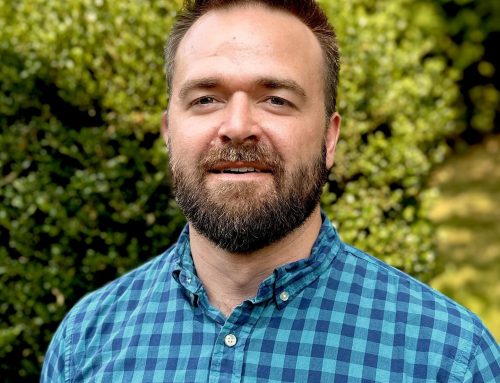Who hasn’t dreamed of spending a lazy summer at the beach or by a pool, relaxing and escaping the routine of our daily lives? Or daydreamed about spending an entire summer traveling or simply enjoying unstructured days?
Yet, research shows that Americans tend to work the longest hours of any Western nation, have limited vacation time compared to other countries, and often don’t use those hours or work even when they aren’t at the office. For many of us, the dream of enjoying the “lazy, hazy days of summer” has been replaced by the refrain “summertime and the living is busy.” Surely there is a way to make summer easier on all of us.

The whole concept of a summer break is a holdover from a bygone era. One explanation is that in agrarian settings, families needed to keep their kids home from school to help with the work during the summer. Another is that in the pre-air conditioning era, it was simply too hot in many cities, so people went elsewhere, reducing the number of children in the classroom.
Today, most jobs are year-round, but our public schools are not, creating a scheduling disconnect for many families. As a result, few of us end up spending summers that live up to the romanticized versions of travel and relaxed vacation time we see in our social media feeds, movies, and television. While we often question the relentless pressure we feel to create a picture-perfect Christmas celebration, the gap between our summer expectations and reality can be equally frustrating.
Even if we have given up on the idea of a summer holiday, many of us hope to spend time catching up on projects we are meant to do during the year. However, managing a household when the kids are home all day, cobbling together a childcare schedule, or getting work done when colleagues are on vacation can feel even more difficult than maintaining a regular schedule. So, are we doomed to spend the spring waiting for summer and the fall waiting for Christmas only to be disappointed twice a year? Or could we find a way to reduce the gap between what we have and what we want?
There are two ways to approach this. One is to change our circumstances, the other is to alter our thoughts, and often we need to do both simultaneously. If you feel your summer is racing away without you, spend some time thinking about or even writing down what you wanted to do or accomplish. Once you have a comprehensive list, rank each item as something you really want/need to do, would like to do, or could delay or eliminate.
Then you make a realistic assessment of how much time, energy, money, cooperation from other people, etc., those activities will take. If that list is overwhelming, think about how you might adjust the goal, enlist help, or move your categories around. The idea is to figure out how you can use the resources you do have to achieve the goals you most care about.
 You might notice that up to this point. You haven’t taken any action. What you are doing is creating a realistic plan. If it becomes apparent that you don’t have enough time to achieve all of your goals, try finding a future time when you can focus on some of them. For example, if you can’t find a free weekend to take the family to the coast in August, check the average weather reports and see if you can find a slot later in the fall when the weather is still nice, the rates have dropped for accommodations, and the beaches are less crowded.
You might notice that up to this point. You haven’t taken any action. What you are doing is creating a realistic plan. If it becomes apparent that you don’t have enough time to achieve all of your goals, try finding a future time when you can focus on some of them. For example, if you can’t find a free weekend to take the family to the coast in August, check the average weather reports and see if you can find a slot later in the fall when the weather is still nice, the rates have dropped for accommodations, and the beaches are less crowded.
Besides, anticipating a trip is part of the fun. Suppose your goals involve getting something done around the house or tackling a work project. In that case, you might want to break the project into smaller pieces or automatically increase your time estimate to account for the inevitable setbacks that occur. If we can learn anything from the seemingly endless array of home improvement shows on television, setting impossible goals and then grousing about being behind does nothing to improve the quality of the build or your relationships.
But what if you desperately need to escape the demands of your daily life but don’t have lots of money? Again, the key is to figure out what you need a break from. If it is email or social media, can you turn it off for a few days or just check and respond to important items for one set amount of time a day?
If it is doing something new, can you play tourist in your neighborhood and visit the attractions people come there to see? Can you camp in the backyard, read a book while lounging in a kid’s wading pool, or invite friends over to play board games and share drinks or snacks? Sure, the pictures on Facebook would be more impressive if there was a real campfire, lake, or beach in the background, but the goal is not to accumulate the most impressive selfie collection. It is to identify and meet your own cognitive and emotional needs so you can feel good about yourself and how you spent your summer.
The bottom line is that we are exposed to a constant onslaught of information, implying that we should be getting more done or enjoying our summers more than most of us are. The solution is to pay real attention to what you need from the summer and tune out the rest of the noise.
If you are clear about your goals, realistic about your plans, and intentional about achieving them, you can relax in your backyard, repaint the living room or spend more time socializing with your family or friends and feel good about doing it. And if you really want to, you can change the background on some of those selfies later!
Retrieved from https://www.psychologytoday.com/us/blog/mental-health-matters/202207/does-your-summer-feel-more-busy-than-lazy




